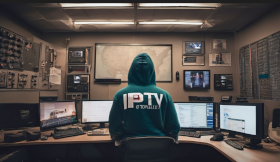-
chevron_right
Pirate IPTV Investigations Are Expensive, Time-Consuming & Prone to Misfire
news.movim.eu / TorrentFreak · Friday, 5 April - 07:04 · 6 minutes
 For the best part of 15 years, maybe more, Sweden was rarely out of the piracy headlines. Kept busy by the endless antics of The Pirate Bay, there was always some type of chaos to contend with, and that kept everyone very busy.
For the best part of 15 years, maybe more, Sweden was rarely out of the piracy headlines. Kept busy by the endless antics of The Pirate Bay, there was always some type of chaos to contend with, and that kept everyone very busy.
With an entire generation exposed to piracy thanks to the most notorious pirates of them all, there was always a question mark over Sweden’s ability to turn its back on The Pirate Bay in favor of legitimate services. Spotify, another local phenomenon, played a key role when it specifically targeted pirates; its product is still vastly superior to any music-focused piracy service available anywhere.
While still not averse to dabbling around the main brace of The Pirate Bay, towards the middle of the last decade, Swedes were increasingly turning to an old pirate friend sporting a new coat of paint. Video streaming had been around for years but when packaged up as a consumer-like product, accessed via a living-room set-top box rather than a PC, Swedes had their collective heads turned. They weren’t alone.
Swedes and the New Piracy Boogeyman
Starting around 2016, give or take depending on region, pirate IPTV services exploded globally. Acting as a direct replacement, for some even an antidote to runaway expensive TV subscription packages, the IPTV boom most likely had entertainment companies reluctantly nostalgic for The Pirate Bay.
A study published by the EU Intellectual Property Office in November 2019 revealed ( pdf ) that Sweden and the Netherlands were the most prolific consumers of pirate IPTV services in the entire bloc, with 9% of each population already exposed.
At the same time, legal consumption was trending up but with an overall piracy rate of around 20%, rightsholders could still see potential profit slipping away.
Pressure Increases on Players in the Illicit Market
In common with its counterparts in Europe, Sweden had already been paying more attention to those involved in the supply and sale of pirate IPTV subscriptions. Most investigations fell to local anti-piracy group Rights Alliance which represents the interests of large local broadcasters and film companies, plus those of the majors in Hollywood.
In 2022, a then 23-year-old was criminally convicted and ordered to pay around $230,000 in damages to local rightsholders. Soon after a subscription reseller received a six-month sentence , a step up from the community sentences seen earlier. Other cases came and went, mostly ending in success for the plaintiffs.
Anticipation Following Lengthy Investigation
In 2019, the same year that Sweden and the Netherlands were dueling for top spot on the EU’s IPTV piracy list, Rights Alliance referred an IPTV piracy case to local police. The group believed the man was behind Dreamhost, one of the more popular pirate IPTV brands in Sweden and therefore a priority target.
Regardless of the target, no investigation of this type is ever straightforward. As Rights Alliance reported in 2023, the cross-border nature of the offending can require evidence to be obtained from overseas, meaning that cases can drag on for quite some time. In this case, already four years.
Nevertheless, Rights Alliance described the evidence as extensive. A resident of southern Sweden, the man was the alleged registrant of the service’s domain name. He moderated the service’s chats, for which the logs had been obtained, and he answered questions posed by customers.
On top of IP address tracking evidence and email address data, a financial investigation reportedly identified two bitcoin wallets linked to the suspect, and data revealing that almost SEK 2,000,000 was received in 2020 alone, roughly $189,000 at today’s rates. Police also found payments between the suspect’s accounts and an account linked to Dreamhost.
Sales to Friends and Family, Fear, Remote Control
Last September in advance of his trial, Rights Alliance revealed that under questioning, the man admitted doing some technical work for Dreamhost and selling subscriptions to family and friends. He also claimed that he didn’t know who was behind Dreamhost and at times, since he felt threatened, allowed his computer to be controlled remotely, by a person he couldn’t identify.
Whether the claims had any substance is unclear but the rightsholders behind the prosecution would be requesting serious compensation for damage caused by the service, Rights Alliance said.
Guilty Verdict
In an October 2023 announcement, Rights Alliance revealed that the man had been found guilty. The extensive evidence was noted once again and reference was made to the SEK 2,000,000 the man received in 2020. The sentence itself appeared to come as a disappointment, however.
“The penalty was determined to be a suspended sentence and 100 daily fines,” Rights Alliance reported, a reference to the Swedish system where fines are calculated based on a person’s daily income. The number of ‘day fines’ imposed is meant to mirror the amount lost had the convicted been imprisoned without earnings.
Noting that the man had avoided being sentenced under the much tougher regime now in place, Rights Alliance said little else.
Decision Went to Appeal
A Rights Alliance statement published Thursday summarizes a verdict also handed down yesterdayby the Patent and Market Appeal Court. Rights Alliance didn’t post a copy of the decision and the court is yet to make it public, but it seems likely that the rightsholders appealed against the relatively light sentence handed down last October.
The verdict as reported suggests that the conditional sentence and 100 day fines stands. However, the SEK 2,000,000 in damages payable to rightsholders is now being reported as SEK 1,700,000. A SEK 300,000 reduction transforms the $189,000 award to one just shy of $160,000.
“The verdict shows that it takes a long time from report to verdict, but that despite everything, it is not possible to avoid the long arm of the law,” Rights Alliance concludes.
When searching fruitlessly for a copy of the decision handed down Thursday, we stumbled across another case that appears to challenge the assertion that the long arm of the law is inevitable.
Details Matter
The case involves an appeal of a judgment handed down by the Patent and Market Court in June 2022 and a person named only as L.K., who was accused of copyright infringement in connection with the website swedeniptv.se.
“According to the indictment, L.K.’s involvement in the offense primarily consisted of paying for the domain and administering the website, charging customers, and marketing the website. Secondly, he is alleged to have promoted others’ illegal distribution of the films, which occurred via the website swedeniptv.se,” a decision by the court of appeal reads.
“The Patent and Market Court of Appeal assesses that it is already evident from L.K.’s own statements that he had the primary role concerning the website swedeniptv.se. However, his main objections to the indictment are that the films in question were not available via the website and that he acted as a so-called ‘gatekeeper’ for other individuals who remotely controlled his computers.”
It appears that when L.K. was on trial, the prosecutor (acting for movie company plaintiffs Swedish Film Industry, Nordisk Film, Disney, Universal, and Sony) alleged that the movies were made available to the public via the website swedeniptv.se. In reality, people purchased subscriptions from swedeniptv.se and then received a link via email which linked to servers in the Netherlands.
The court of appeal found that films being made available via an email link to a Dutch website was something “not apparent from the description of the act” provided by the prosecution. As a result it had not been shown beyond reasonable doubt that L.K. committed the act the prosecutor alleged.
The panel did not reach a unanimous decision. In light of the facts presented during case, including the defendant’s admissions, an objective view of the arguments of those who dissented reveals reasonable conclusions that could’ve prevailed anywhere else on a different day.
They appear to have been thwarted on a technicality, one that seems like it should’ve been completely avoidable
From: TF , for the latest news on copyright battles, piracy and more.
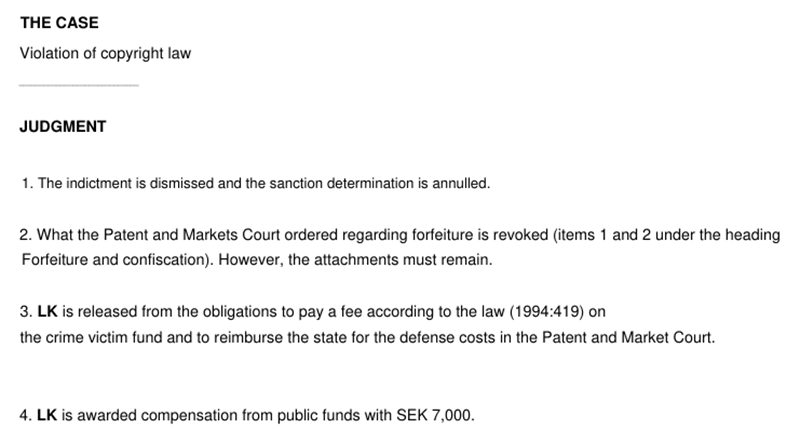
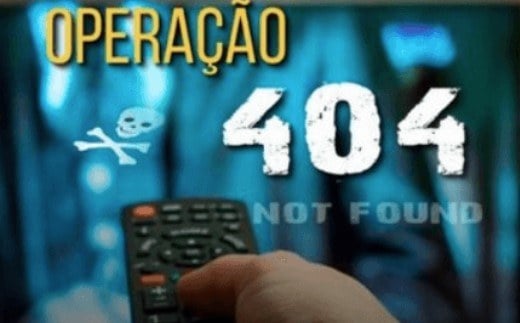 In the
In the

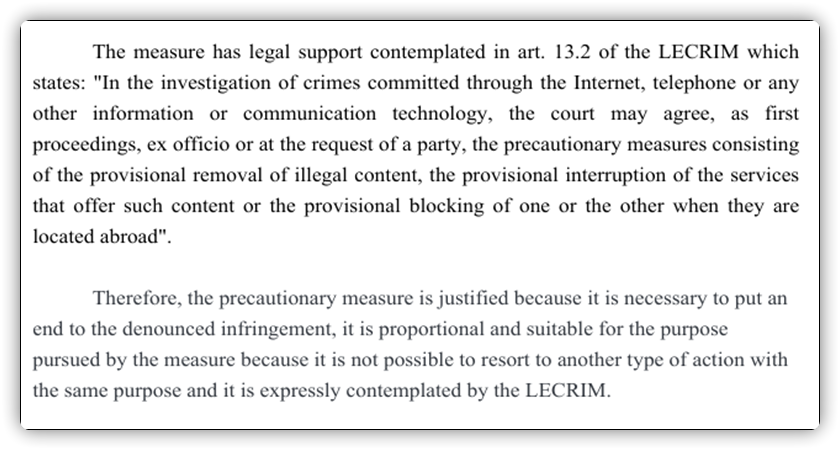

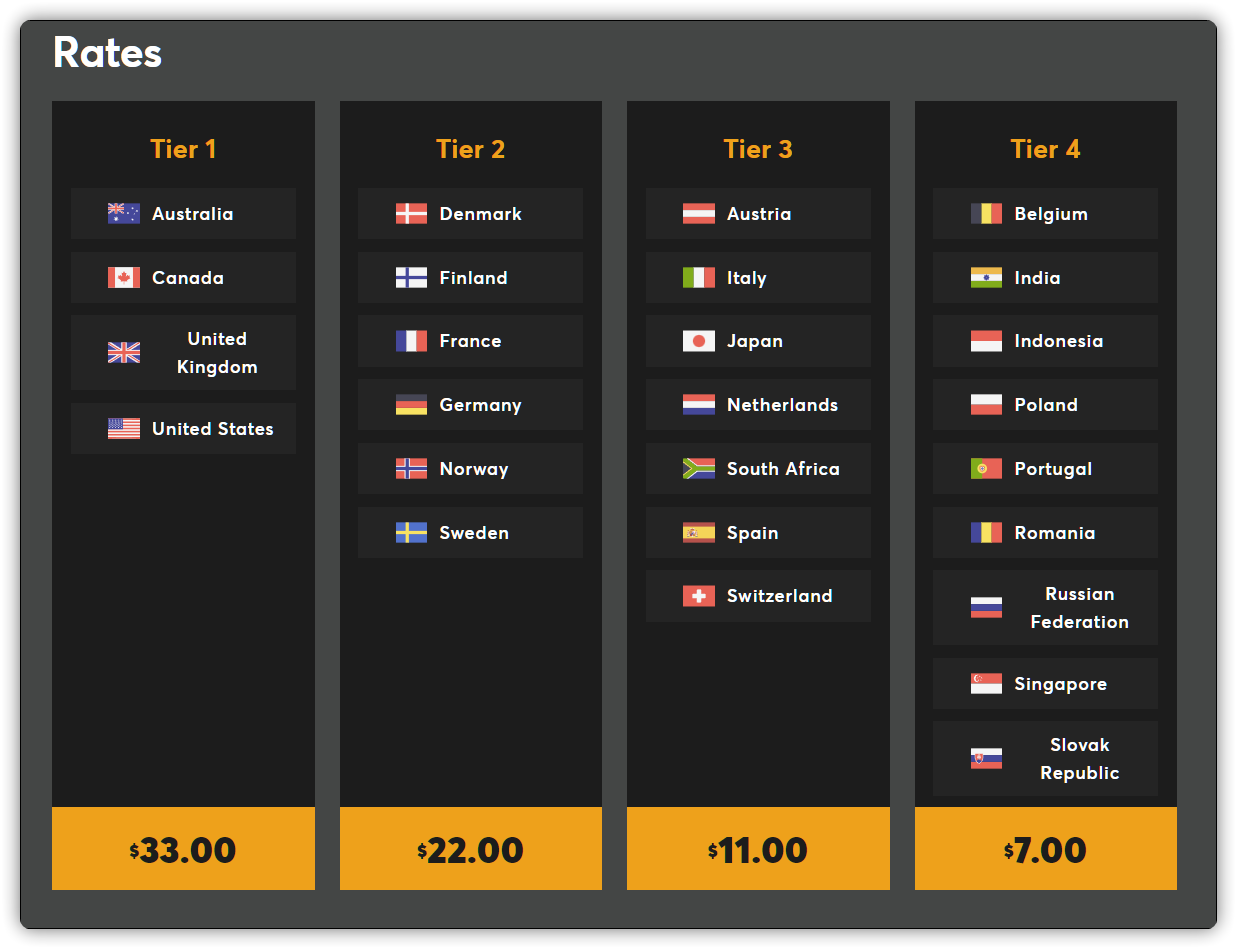
 In 2007, Netflix shifted from distributing optical media via the mail to streaming content online. Apple released the first iPhone in the same year, but neither were quite ready to start squeezing the modern equivalent of the silver screen onto a 320×480 LCD panel.
In 2007, Netflix shifted from distributing optical media via the mail to streaming content online. Apple released the first iPhone in the same year, but neither were quite ready to start squeezing the modern equivalent of the silver screen onto a 320×480 LCD panel.







